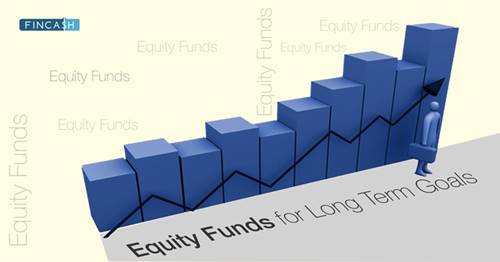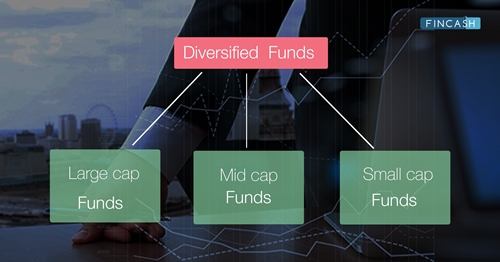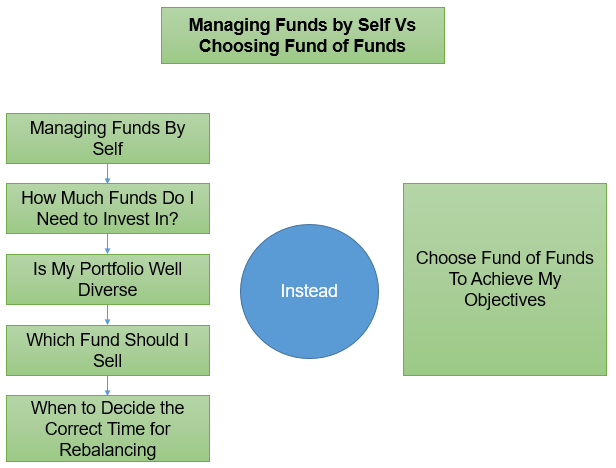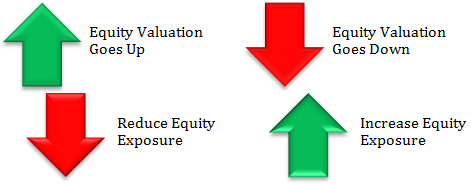
Table of Contents
What are Money Market Funds?
A money Market fund (MMF) is a type of fixed Income mutual fund that invests in debt securities. But, before we start with money market funds, it's important to understand what is a fixed income instrument? Well, as the name denotes, a fixed income instrument is something that generates a specified amount of income over a certain period. The investor is given a fixed claim on the assets held by the issuer, fixed income instruments are considered low-risk and low-yield investments. Essentially, fixed income instruments are nothing, but a way of borrowing funds (where the borrowing is done by the issuer).
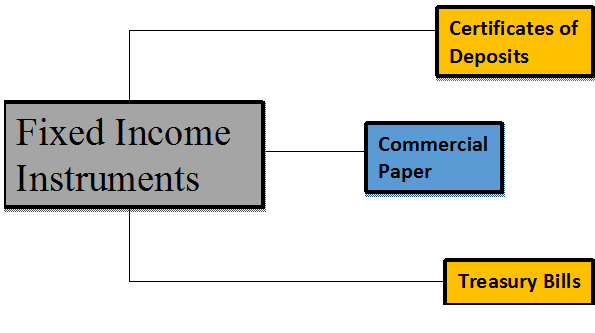
Fixed Income Vs Stocks
For starters, fixed income gives economic rights to the holder, which includes the right to receive interest payments and the return of all or part of Capital invested at a given date. In contrast, the shareholder (stock owner) receives dividends from the issuer, but the company is not bound by any law to pay dividends. Also, another important difference is that the fixed income holder is a creditor of the company that issues the security, while a shareholder is a partner, owning a part of the capital stock. Here it’s important to understand that if the company goes bust, the creditors (bondholders) have priority over shareholders (equity holders).
Types of Fixed Income Instruments
There are different fixed income instruments that fall under money market instruments, to name some of them:
Certificates of Deposits (CDs)
Time deposits like term deposits are commonly offered to consumers by banks (scheduled commercial banks) & all India financial institutions. The difference between this and a term deposit in a Bank is that CDs can’t be withdrawn.
Commercial Paper (CPs)
Commercial papers are usually known as promissory notes which are unsecured and are generally issued by companies and financial institutions, at a discounted rate from their Face Value. The fixed maturity for commercial papers is 1 to 270 days. The purposes for which they are issued are - for inventory financing, accounts Receivables, and settling short-term liabilities or loans.
Treasury Bills (T-Bills)
Treasury bills were first issued by the Indian government in 1917. Treasury bills are short-term financial instruments that are issued by the Central Bank of the country. It is one of the safest money market instruments as it is void of market risks (since the risk is sovereign or in this case the Government of India), though the return on investments is not that huge. Treasury bills are circulated by the primary as well as the secondary markets. The maturity periods for treasury bills are respectively 3-month, 6-month, and 1-year.
There are lots of other fixed income instruments such as repurchase agreements (repos), asset-backed securities etc., that also exist in the Indian fixed income market, but the above are the more common ones.
Talk to our investment specialist
Why to Invest in Money Market Mutual Funds?
- Securities in the money market are relatively low risk.
- Money market funds are considered to be the safe and secure of all Mutual Fund investments.
- Considering money market funds, it’s easy to invest in a money market account. Investing through Mutual Funds investors can open an account, make deposits and withdrawals virtually at their convenience.
- Money market funds are considered to be one of the least volatile types of all mutual fund investments.
- The performance of money market funds is closely tied to the interest rates set by the Reserve Bank of India, the Central Bank of India. So, when RBI raises rates in the market, yields increase, and money market funds are able to give good returns.
Money Market Instruments & Bonds: The Difference
Bonds have a maturity period of more than one year which differentiates it from other debt securities like commercial papers, treasury bills and other money market instruments which typically have a maturity period of less than one year.
What is Money Market?
Money market generally refers to a section of the financial market where financial instruments with smaller maturities (less than a year) and high liquidity are traded. India has a very active money market, where a host of instruments are traded. Here you have Mutual Fund companies, government banks and various other large domestic institutions participating. The money market has become a component of the financial market for buying and selling of securities of short-term duration, such as commercial papers and treasury bills.
Money Market Rates
The money market rates are the interest rates offered by short-term money market instruments. These instruments have a maturity ranging from 1 day to one year. The money market rates vary over many complex instruments such as treasury bills, Call money, Commercial Paper (CP), certificates of deposits (CDs), repos, etc. The Reserve Bank of India (RBI) is largely the governing authority over the money markets.
An example of the money market rates of various instruments as given on the RBI site as of 28th Feb 2017 is below for reference.
| Volume (One Leg) | Weighted Average Rate | Range | |
|---|---|---|---|
| A. Overnight Segment (I+II+III+IV) | 553,584.29 | 6.64 | 4.60-6.86 |
| I. Call Money | 16,300.98 | 6.67 | 4.60-6.85 |
| II. Triparty Repo | 376,743.10 | 6.64 | 6.56-6.80 |
| III. Market Repo | 160,540.21 | 6.65 | 6.00-6.86 |
| IV. Repo in Corporate Bond | 0.00 | - | - |
| B. Term Segment | |||
| I. Notice Money** | 109.00 | 6.27 | 6.00-6.70 |
| II. Term Money@@ | 351.00 | - | 6.40-7.00 |
| III. Triparty Repo | 55.00 | 6.60 | 6.60-6.60 |
| IV. Market Repo | 1,075.00 | 6.76 | 6.75-6.85 |
| V. Repo in Corporate Bond | 0.00 | - | - |
Source: Money Market Operations, RBI Date: 27 Feb 2023
Mutual Fund Companies Offering Money Market Funds
As we have learnt about various types of instruments above, it’s equally important to know how an investor could invest in money market funds. There are 44 AMCs (Asset Managment Companies) in India, most of them Offering money market funds (mainly Liquid Funds and ultra-short funds for investors). Investors can also invest via distributors like banks and brokers. Investing in money market funds requires one to follow the respective procedure and the relevant applications. The terms & conditions of debt mutual funds may vary, therefore, it’s important to get an overall knowledge and then choose the one that meets your needs. Moreover, before investing into any money market mutual funds carefully consider its investment objectives, risks, returns, and expenses.
Factors to Consider for Investing in MMFs
Here are some important aspects that you must consider before investing in money market funds in India:
a. Risks and Returns
Money Market Funds are Debt fund and hence carry all the risks applicable to debt funds like interest rate risk and credit risk. Additionally, the fund manager might invest in instruments with a slightly higher risk component to increase returns. Usually, money market funds tend to offer better returns than a regular Savings Account. The Net Asset Value or NAV of these funds changes with a change in the interest rate regime.
b. Expense Ratio
Since the returns are not very high, the expense ratio plays an important role in determining your Earnings from a money market fund. Expense Ratio is a small percentage of the total assets of the fund charged by the fund house towards fund management services. Ideally, you should look for funds with a lower expense ratio to maximize your returns.
c. Invest according to your Investment Plan
Usually, money market funds are recommended to investors with an investment horizon of 90-365 days. These schemes can help you diversify your portfolio and help invest surplus cash while maintaining liquidity. Ensure that you invest according to your Investment plan.
d. Taxation
In the case of Money Market Funds, the taxation rules are as follows:
Capital Gains Tax
If you hold the units of the scheme for a period of up to three years, then the Capital Gains earned by you are called short-term capital gains or STCG. STCG is added to your Taxable Income and taxed as per the applicable income tax slab. If you hold the units of the scheme for more than three years, then the capital gains earned by you are called long-term capital gains or LTCG. It is taxed at 20% with indexation benefits.
Best Money Market Funds to Invest in FY 24 - 25
Some of the best money market funds in India are as follows-
Fund NAV Net Assets (Cr) 3 MO (%) 6 MO (%) 1 YR (%) 3 YR (%) 2023 (%) Debt Yield (YTM) Mod. Duration Eff. Maturity Aditya Birla Sun Life Money Manager Fund Growth ₹339.237
↑ 0.09 ₹18,375 2.1 3.9 7.6 5.8 7.4 7.93% 9M 22D 9M 25D UTI Money Market Fund Growth ₹2,825.43
↑ 0.71 ₹11,680 2 3.8 7.6 5.8 7.4 7.71% 9M 9D 9M 9D Nippon India Money Market Fund Growth ₹3,804.73
↑ 0.90 ₹12,205 2 3.8 7.6 5.9 7.4 7.89% 8M 2D 8M 21D Tata Money Market Fund Growth ₹4,329.47
↑ 1.05 ₹14,015 2 3.8 7.6 5.8 7.4 7.67% 7M 8D 7M 8D ICICI Prudential Money Market Fund Growth ₹347.823
↑ 0.08 ₹15,509 2 3.8 7.5 5.7 7.4 7.77% 6M 13D 6M 30D Note: Returns up to 1 year are on absolute basis & more than 1 year are on CAGR basis. as on 3 May 24
(Erstwhile Aditya Birla Sun Life Floating Rate Fund - Short Term) The primary objective of the schemes is to generate regular income through investment in a portfolio comprising substantially of floating rate debt / money market instruments. The schemes may invest a portion of its net assets in fixed rate debt securities and money market instruments. Aditya Birla Sun Life Money Manager Fund is a Debt - Money Market fund was launched on 13 Oct 05. It is a fund with Low risk and has given a Below is the key information for Aditya Birla Sun Life Money Manager Fund Returns up to 1 year are on To provide highest possible current income consistent with preservation of capital and providing liquidity from investing in a diversified portfolio of short term money market securities. UTI Money Market Fund is a Debt - Money Market fund was launched on 13 Jul 09. It is a fund with Low risk and has given a Below is the key information for UTI Money Market Fund Returns up to 1 year are on (Erstwhile Reliance Liquidity Fund) The investment objective of the Scheme is to generate optimal returns consistent with moderate levels of risk and high liquidity. Accordingly, investments shall predominantly be made in Debt and Money Market Instruments. Nippon India Money Market Fund is a Debt - Money Market fund was launched on 16 Jun 05. It is a fund with Low risk and has given a Below is the key information for Nippon India Money Market Fund Returns up to 1 year are on (Erstwhile Tata Liquid Fund) To create a highly liquid portfolio of good quality debt as well as money market instruments so as to provide reasonable returns and high liquidity to the unitholders. Tata Money Market Fund is a Debt - Money Market fund was launched on 22 May 03. It is a fund with Low risk and has given a Below is the key information for Tata Money Market Fund Returns up to 1 year are on The objective of the Plan will be to seek to provide reasonable returns, commensurate with low risk while providing a high level of liquidity, through investments made primarily in money market and debt securities. ICICI Prudential Money Market Fund is a Debt - Money Market fund was launched on 9 Mar 06. It is a fund with Low risk and has given a Below is the key information for ICICI Prudential Money Market Fund Returns up to 1 year are on 1. Aditya Birla Sun Life Money Manager Fund
CAGR/Annualized return of 6.8% since its launch. Ranked 7 in Money Market category. Return for 2023 was 7.4% , 2022 was 4.8% and 2021 was 3.8% . Aditya Birla Sun Life Money Manager Fund
Growth Launch Date 13 Oct 05 NAV (03 May 24) ₹339.237 ↑ 0.09 (0.03 %) Net Assets (Cr) ₹18,375 on 31 Mar 24 Category Debt - Money Market AMC Birla Sun Life Asset Management Co Ltd Rating ☆☆☆☆☆ Risk Low Expense Ratio 0.33 Sharpe Ratio 2.18 Information Ratio 0 Alpha Ratio 0 Min Investment 1,000 Min SIP Investment 1,000 Exit Load NIL Yield to Maturity 7.93% Effective Maturity 9 Months 25 Days Modified Duration 9 Months 22 Days Growth of 10,000 investment over the years.
Date Value 30 Apr 19 ₹10,000 30 Apr 20 ₹10,771 30 Apr 21 ₹11,374 30 Apr 22 ₹11,817 30 Apr 23 ₹12,529 30 Apr 24 ₹13,482 Returns for Aditya Birla Sun Life Money Manager Fund
absolute basis & more than 1 year are on CAGR (Compound Annual Growth Rate) basis. as on 3 May 24 Duration Returns 1 Month 0.6% 3 Month 2.1% 6 Month 3.9% 1 Year 7.6% 3 Year 5.8% 5 Year 6.2% 10 Year 15 Year Since launch 6.8% Historical performance (Yearly) on absolute basis
Year Returns 2023 7.4% 2022 4.8% 2021 3.8% 2020 6.6% 2019 8% 2018 7.9% 2017 6.8% 2016 7.7% 2015 8.4% 2014 9.2% Fund Manager information for Aditya Birla Sun Life Money Manager Fund
Name Since Tenure Kaustubh Gupta 15 Jul 11 12.72 Yr. Anuj Jain 22 Mar 21 3.03 Yr. Mohit Sharma 1 Apr 17 7.01 Yr. Dhaval Joshi 21 Nov 22 1.36 Yr. Data below for Aditya Birla Sun Life Money Manager Fund as on 31 Mar 24
Asset Allocation
Asset Class Value Cash 67.37% Debt 32.42% Other 0.2% Debt Sector Allocation
Sector Value Corporate 48.34% Cash Equivalent 32.29% Government 19.17% Credit Quality
Rating Value AAA 100% Top Securities Holdings / Portfolio
Name Holding Value Quantity India (Republic of)
- | -2% ₹472 Cr 50,000,000 Axis Bank Ltd.
Debentures | -2% ₹472 Cr 10,000 IDFC First Bank Ltd.
Debentures | -2% ₹469 Cr 10,000 07.38% MP Sdl 2025
Sovereign Bonds | -2% ₹466 Cr 46,500,000
↑ 28,000,000 05.80 MH Sdl 2025
Sovereign Bonds | -2% ₹465 Cr 47,000,000 Tata Teleservices Ltd
Debentures | -2% ₹445 Cr 9,500 Small Industries Development Bank of India
Debentures | -2% ₹376 Cr 8,000 HDFC Bank Ltd.
Debentures | -2% ₹329 Cr 7,000
↑ 2,000 Indusind Bank Ltd.
Debentures | -1% ₹284 Cr 6,000 ICICI Bank Ltd.
Debentures | -1% ₹236 Cr 5,000 2. UTI Money Market Fund
CAGR/Annualized return of 7.3% since its launch. Ranked 23 in Money Market category. Return for 2023 was 7.4% , 2022 was 4.9% and 2021 was 3.7% . UTI Money Market Fund
Growth Launch Date 13 Jul 09 NAV (03 May 24) ₹2,825.43 ↑ 0.71 (0.03 %) Net Assets (Cr) ₹11,680 on 31 Mar 24 Category Debt - Money Market AMC UTI Asset Management Company Ltd Rating ☆☆☆☆ Risk Low Expense Ratio 0.75 Sharpe Ratio 2.39 Information Ratio 0 Alpha Ratio 0 Min Investment 10,000 Min SIP Investment 500 Exit Load NIL Yield to Maturity 7.71% Effective Maturity 9 Months 9 Days Modified Duration 9 Months 9 Days Growth of 10,000 investment over the years.
Date Value 30 Apr 19 ₹10,000 30 Apr 20 ₹10,732 30 Apr 21 ₹11,295 30 Apr 22 ₹11,730 30 Apr 23 ₹12,442 30 Apr 24 ₹13,385 Returns for UTI Money Market Fund
absolute basis & more than 1 year are on CAGR (Compound Annual Growth Rate) basis. as on 3 May 24 Duration Returns 1 Month 0.6% 3 Month 2% 6 Month 3.8% 1 Year 7.6% 3 Year 5.8% 5 Year 6% 10 Year 15 Year Since launch 7.3% Historical performance (Yearly) on absolute basis
Year Returns 2023 7.4% 2022 4.9% 2021 3.7% 2020 6% 2019 8% 2018 7.8% 2017 6.7% 2016 7.7% 2015 8.4% 2014 9.1% Fund Manager information for UTI Money Market Fund
Name Since Tenure Anurag Mittal 1 Dec 21 2.33 Yr. Amit Sharma 7 Jul 17 6.74 Yr. Data below for UTI Money Market Fund as on 31 Mar 24
Asset Allocation
Asset Class Value Cash 64.3% Debt 35.46% Other 0.24% Debt Sector Allocation
Sector Value Corporate 49.83% Cash Equivalent 36.08% Government 13.85% Credit Quality
Rating Value AAA 100% Top Securities Holdings / Portfolio
Name Holding Value Quantity Canara Bank
Domestic Bonds | -6% ₹795 Cr 8,500,000,000
↓ -500,000,000 India (Republic of)
- | -5% ₹680 Cr 7,000,000,000 India (Republic of)
- | -4% ₹486 Cr 5,000,000,000 Kotak Mahindra Bank Ltd.
Debentures | -2% ₹283 Cr 3,000,000,000 Indian Bank
Domestic Bonds | -2% ₹281 Cr 3,000,000,000 AU Small Finance Bank Ltd.
Debentures | -2% ₹234 Cr 2,500,000,000 182 DTB 29082024
Sovereign Bonds | -1% ₹195 Cr 2,000,000,000 India (Republic of)
- | -1% ₹195 Cr 2,000,000,000 Kotak Mahindra Bank Ltd.
Debentures | -1% ₹170 Cr 1,750,000,000 Kotak Mahindra Bank Ltd.
Debentures | -1% ₹142 Cr 1,500,000,000 3. Nippon India Money Market Fund
CAGR/Annualized return of 7.3% since its launch. Ranked 27 in Money Market category. Return for 2023 was 7.4% , 2022 was 5% and 2021 was 3.8% . Nippon India Money Market Fund
Growth Launch Date 16 Jun 05 NAV (03 May 24) ₹3,804.73 ↑ 0.90 (0.02 %) Net Assets (Cr) ₹12,205 on 31 Mar 24 Category Debt - Money Market AMC Nippon Life Asset Management Ltd. Rating ☆☆☆ Risk Low Expense Ratio 0.31 Sharpe Ratio 2.05 Information Ratio 0 Alpha Ratio 0 Min Investment 5,000 Min SIP Investment 100 Exit Load NIL Yield to Maturity 7.89% Effective Maturity 8 Months 21 Days Modified Duration 8 Months 2 Days Growth of 10,000 investment over the years.
Date Value 30 Apr 19 ₹10,000 30 Apr 20 ₹10,757 30 Apr 21 ₹11,303 30 Apr 22 ₹11,742 30 Apr 23 ₹12,458 30 Apr 24 ₹13,403 Returns for Nippon India Money Market Fund
absolute basis & more than 1 year are on CAGR (Compound Annual Growth Rate) basis. as on 3 May 24 Duration Returns 1 Month 0.6% 3 Month 2% 6 Month 3.8% 1 Year 7.6% 3 Year 5.9% 5 Year 6% 10 Year 15 Year Since launch 7.3% Historical performance (Yearly) on absolute basis
Year Returns 2023 7.4% 2022 5% 2021 3.8% 2020 6% 2019 8.1% 2018 7.9% 2017 6.6% 2016 7.6% 2015 8.3% 2014 9.1% Fund Manager information for Nippon India Money Market Fund
Name Since Tenure Anju Chhajer 1 Feb 20 4.17 Yr. Kinjal Desai 16 Jul 18 5.71 Yr. Data below for Nippon India Money Market Fund as on 31 Mar 24
Asset Allocation
Asset Class Value Cash 78.14% Debt 21.63% Other 0.23% Debt Sector Allocation
Sector Value Corporate 49.05% Cash Equivalent 31.25% Government 19.47% Credit Quality
Rating Value AAA 100% Top Securities Holdings / Portfolio
Name Holding Value Quantity 182 DTB 29082024
Sovereign Bonds | -3% ₹366 Cr 37,500,000
↓ -2,500,000 India (Republic of)
- | -2% ₹340 Cr 35,000,000
↑ 20,000,000 Indusind Bank Ltd.
Debentures | -2% ₹281 Cr 6,000 07.38% MP Sdl 2025
Sovereign Bonds | -2% ₹276 Cr 27,500,000 08.10 JH Sdl 2025
Sovereign Bonds | -2% ₹252 Cr 25,000,000 08.09 Ts SDL 2025
Sovereign Bonds | -2% ₹237 Cr 23,500,000 AU Small Finance Bank Ltd.
Debentures | -2% ₹233 Cr 5,000 182 DTB 22082024
Sovereign Bonds | -1% ₹171 Cr 17,500,000 India (Republic of)
- | -1% ₹141 Cr 15,000,000 India (Republic of)
- | -1% ₹123 Cr 12,634,100
↑ 500,000 4. Tata Money Market Fund
CAGR/Annualized return of 6.7% since its launch. Ranked 30 in Money Market category. Return for 2023 was 7.4% , 2022 was 4.8% and 2021 was 3.9% . Tata Money Market Fund
Growth Launch Date 22 May 03 NAV (03 May 24) ₹4,329.47 ↑ 1.05 (0.02 %) Net Assets (Cr) ₹14,015 on 31 Mar 24 Category Debt - Money Market AMC Tata Asset Management Limited Rating ☆☆☆ Risk Low Expense Ratio 0.22 Sharpe Ratio 2.26 Information Ratio 0 Alpha Ratio 0 Min Investment 5,000 Min SIP Investment 500 Exit Load NIL Yield to Maturity 7.67% Effective Maturity 7 Months 8 Days Modified Duration 7 Months 8 Days Growth of 10,000 investment over the years.
Date Value 30 Apr 19 ₹10,000 30 Apr 20 ₹10,732 30 Apr 21 ₹11,333 30 Apr 22 ₹11,771 30 Apr 23 ₹12,473 30 Apr 24 ₹13,416 Returns for Tata Money Market Fund
absolute basis & more than 1 year are on CAGR (Compound Annual Growth Rate) basis. as on 3 May 24 Duration Returns 1 Month 0.6% 3 Month 2% 6 Month 3.8% 1 Year 7.6% 3 Year 5.8% 5 Year 6.1% 10 Year 15 Year Since launch 6.7% Historical performance (Yearly) on absolute basis
Year Returns 2023 7.4% 2022 4.8% 2021 3.9% 2020 6.4% 2019 8.1% 2018 -0.1% 2017 6.7% 2016 7.6% 2015 8.3% 2014 9% Fund Manager information for Tata Money Market Fund
Name Since Tenure Amit Somani 16 Oct 13 10.47 Yr. Data below for Tata Money Market Fund as on 31 Mar 24
Asset Allocation
Asset Class Value Cash 61.83% Debt 37.94% Other 0.22% Debt Sector Allocation
Sector Value Corporate 42.09% Cash Equivalent 37.31% Government 20.37% Credit Quality
Rating Value AAA 100% Top Securities Holdings / Portfolio
Name Holding Value Quantity Punjab National Bank
Domestic Bonds | -4% ₹708 Cr 15,000 India (Republic of)
- | -4% ₹690 Cr 71,000,000 LIC Housing Finance Ltd.
Debentures | -4% ₹680 Cr 14,500 HDFC Bank Ltd.
Debentures | -3% ₹541 Cr 11,500
↑ 2,000 Punjab & Sind Bank
Debentures | -3% ₹467 Cr 10,000 India (Republic of)
- | -2% ₹417 Cr 44,000,000 India (Republic of)
- | -2% ₹388 Cr 40,000,000
↑ 20,000,000 Union Bank of India
Domestic Bonds | -2% ₹374 Cr 8,000
↑ 8,000 Small Industries Development Bank of India
Debentures | -2% ₹329 Cr 7,000 HDFC Bank Ltd.
Debentures | -2% ₹285 Cr 6,000 5. ICICI Prudential Money Market Fund
CAGR/Annualized return of 7.1% since its launch. Ranked 17 in Money Market category. Return for 2023 was 7.4% , 2022 was 4.7% and 2021 was 3.7% . ICICI Prudential Money Market Fund
Growth Launch Date 9 Mar 06 NAV (03 May 24) ₹347.823 ↑ 0.08 (0.02 %) Net Assets (Cr) ₹15,509 on 31 Mar 24 Category Debt - Money Market AMC ICICI Prudential Asset Management Company Limited Rating ☆☆☆☆ Risk Low Expense Ratio 0.32 Sharpe Ratio 2 Information Ratio 0 Alpha Ratio 0 Min Investment 500 Min SIP Investment 100 Exit Load NIL Yield to Maturity 7.77% Effective Maturity 6 Months 30 Days Modified Duration 6 Months 13 Days Growth of 10,000 investment over the years.
Date Value 30 Apr 19 ₹10,000 30 Apr 20 ₹10,734 30 Apr 21 ₹11,309 30 Apr 22 ₹11,732 30 Apr 23 ₹12,429 30 Apr 24 ₹13,368 Returns for ICICI Prudential Money Market Fund
absolute basis & more than 1 year are on CAGR (Compound Annual Growth Rate) basis. as on 3 May 24 Duration Returns 1 Month 0.6% 3 Month 2% 6 Month 3.8% 1 Year 7.5% 3 Year 5.7% 5 Year 6% 10 Year 15 Year Since launch 7.1% Historical performance (Yearly) on absolute basis
Year Returns 2023 7.4% 2022 4.7% 2021 3.7% 2020 6.2% 2019 7.9% 2018 7.7% 2017 6.7% 2016 7.7% 2015 8.3% 2014 9.1% Fund Manager information for ICICI Prudential Money Market Fund
Name Since Tenure Manish Banthia 12 Jun 23 0.81 Yr. Nikhil Kabra 3 Aug 16 7.67 Yr. Data below for ICICI Prudential Money Market Fund as on 31 Mar 24
Asset Allocation
Asset Class Value Cash 57.46% Debt 42.35% Other 0.19% Debt Sector Allocation
Sector Value Corporate 48.34% Cash Equivalent 34.74% Government 16.73% Credit Quality
Rating Value AAA 100% Top Securities Holdings / Portfolio
Name Holding Value Quantity India (Republic of)
- | -5% ₹941 Cr 100,000,000 Small Industries Development Bank of India
Debentures | -3% ₹563 Cr 12,000
↑ 2,000 Indian Bank
Domestic Bonds | -3% ₹562 Cr 12,000
↑ 2,000 Union Bank of India
Domestic Bonds | -2% ₹468 Cr 10,000 Punjab National Bank
Domestic Bonds | -2% ₹378 Cr 8,000 India (Republic of)
- | -2% ₹376 Cr 40,000,000 India (Republic of)
- | -2% ₹376 Cr 40,000,000 LIC Housing Finance Ltd.
Debentures | -1% ₹281 Cr 6,000 Union Bank of India
Domestic Bonds | -1% ₹280 Cr 6,000
↑ 6,000 Hero Fincorp Limited
Debentures | -1% ₹280 Cr 6,000
Conclusion
While we have learnt about money market instruments it's also important to know about debt mutual funds, their types, and classifications. Well, debt mutual funds are classified into general broad categories such as Liquid Funds, Ultra short term funds, Short Term Funds, Long Term Income Funds and Gilt Funds.
However, to invest in money market funds, it’s very important to understand the situation of the Economy, the direction of interest rates, and the expected direction of movement of yields in corporate debt as well as government debt when investing.
All efforts have been made to ensure the information provided here is accurate. However, no guarantees are made regarding correctness of data. Please verify with scheme information document before making any investment.

